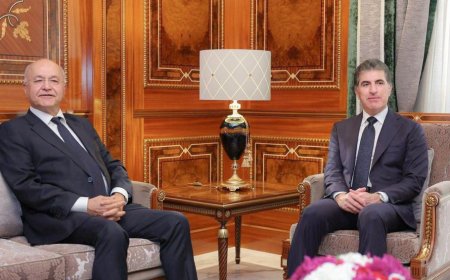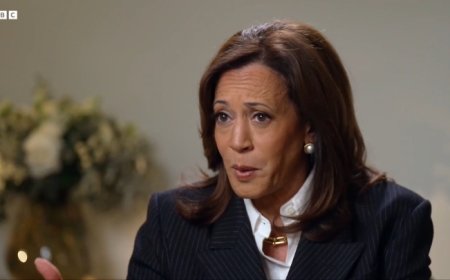Taxpayers helped foot bill for climate project that ‘destroyed’ villages
£33m initiative designed to help poor farmers has left communities on the brink of starvation

The £33m aid project was designed to help poor Ugandan farmers deal with the impact of climate change.
But the reality saw their crops and homes destroyed in an “inhuman” project that left them “on the brink of starvation”.
Local government officials, who were guarded by armed security forces, razed crops, trees and homes as they claimed to be re-wilding wetland in a project run by the Green Climate Fund (GCF), which has received £2.6bn in UK taxpayers’ money.
It is one of a number of controversial projects uncovered in a seven-month investigation by The Telegraph into how the Government is spending £11.6bn in International Climate Finance (ICF).
On Friday, The Telegraph revealed how the public has paid for a £52m road to nowhere through the jungle in Guyana, rusting solar panels on schools in Zimbabwe and condoms in the Congo all under the guise of climate aid.
It comes as Sir Keir Starmer prepares to meet with world leaders at next week’s Cop30 summit in Brazil, where his spokesman said he would be “driving forward the agenda” on “restoring the UK as a global leader on climate action and green growth”.
But his government will face questions at home over their green agendaamid revelations that dozens of the programmes have been beset with allegations of fraud and waste.
The Telegraph can reveal that taxpayer money has also been spent on programmes accused of human rights abuses and for solar panels for one of the world’s richest hotel chains.
This publication has also established that a £70m carbon capture and storage programme, which was due to help the Chinese oil industry, closed without launching a single project.
In Uganda, a £33m project called “Building Resilient Communities, Wetland Ecosystems and Associated Catchments” is designed to improve “subsistence farmers’ ability to deal with climate impacts”.
It was singled out as a success story by UK officials and used as a case story as part of Defra’s “International Climate Finance Evidence Project”.
But in reality, the “inhuman” scheme has left “misery and trauma” in villages that were never officially designated as part of the wetlands, residents say.
One man in his 70s was so shocked when officials, accompanied by armed police and soldiers, turned up unannounced and chopped down his crops that he died of a stroke, they add.
Residents of eight villages in south west Uganda have launched a complaint with the independent redress mechanism (IRM) of the GCF.
They claim that in November 2023 local government officials, guarded by the police and the army, carried out “gross” human rights violations which left the residents “on the brink of starvation”.
The residents accuse them of “invading our land, homes and plantations of trees, bananas, coffee and seasonal crops like maize, beans, millet, cassava, groundnuts, rice and razing all of them to the ground” claiming that they had been built on wetland.
Ruhinda Kaboss, a community leader, told The Telegraph that the GCF “thought that it was going to help us, but we have just ended up crying”.
“We have lived on that land for 150 years, but when someone comes with a gun, what are you supposed to do?” he added.
Those who claim to have lost their homes and their land said they had not been offered any compensation.
Lawyer Peter Arinaitwe, who is representing the residents, also claimed the need for wetland protection had been exaggerated to secure green aid.
He said that the project had “absolutely not” helped the subsistence farmers who knew nothing of the wetlands until officials were “on their land with chainsaws cutting down their crops”.
The IRM is currently overseeing a “problem-solving” case between the residents and local officials.
It has also received separate complaints about the actions of armed security forces in other villages and the drowning of a 17-year-old labourer and an eight-year-old girl at project sites.
The GCF did not respond to a request for comment.
Solar panels for one of the world’s richest hotel chains
The Marriott hotel in Kathmandu proudly announced that it was “taking bold steps” to a greener future by installing solar panels.
But what readers may not have realised is that the panels, at one of the world’s richest hotel chains, were paid for with the help of UK taxpayers.
The support was part of a £58m aid project, largely coming from the climate finance budget, which aimed to “help Nepal to cope with impacts of climate change and promote clean development”.
The Foreign Office did not reveal the businesses which had benefited from the small-scale renewable energy projects, the payouts for which are funnelled through the Nepalese government.
But a trawl through social media showed that it has also given “solar-powered wings” to a Red Bull factory, owned by Saras Beverages, part of a multibillion-dollar conglomerate which also runs banking and mining companies.
With every project announcement, including panels on a steel factory and a car dealership, the Nepal Renewable Energy Programme (NREP) reminds its followers that it was only possible with the “financial support” of the British embassy.
Officials told The Telegraph that the money also supports asset development and capacity-building as well as electric vehicle charging networks and mini-hydropower schemes.
The programme, which scores an A+ on the international development tracker, has provided tens of thousands of people and dozens of businesses with access to clean energy, a review pointed out.
The carbon capture programme which closed without launching a single project
Launched with a fanfare in 2012 and given the highest possible marks by officials, this aid project aimed to develop technology that could remove carbon from the atmosphere.
It would, they seemed certain, make a “transformational change”. But a decade later the view is very different.
The £70m International Carbon Capture Usage and Storage (CCUS) programme provided technical assistance for technology intended to help countries reduce their emissions.
This included launching pilot projects in countries such as South Africa and Nigeria.
CCUS technologies are crucial for net zero plans as they capture carbon dioxide from sources such as power plants and industrial facilities. The Co2 can then be reused in products such as building materials or pumped underground to prevent it from harming the atmosphere.
But such technologies have been notoriously difficult to develop and have a long history of failing to deliver at high cost, often borne by taxpayers.
The pilots funded by the CCUS programme included a plan by a Chinese petroleum company to capture carbon from their chemical power plant and use it to help them get oil out of the ground.
But not a single project is operational as a result of UK funding.
Officials note in the latest annual review that many of the “transformations” that ICF funding hopes to achieve “will only be evident with a time lag” and the CCUS is “one of ICF’s longest running programmes”.
Despite receiving top marks in 2012, by 2023, Department for Energy Security and Net Zero officials downgraded it to the lowest marks, as there was “substantial evidence that suggests transformational change is unlikely or will not occur”.
Sources told the Telegraph that the “vast majority” of the funds allocated to the programme were returned to the Government when it was decided it was not successful.
Secrecy on ICF funding
Ben Pile, a researcher and co-founder of Climate Debate UK, said that there was a lot of secrecy surrounding the ICF spending.
“The green blob has massive resources but for critics of the green agenda it is not possible to see what Governments are spending this money on, there is no genuine independent auditing,” he told The Telegraph.
“When you speak candidly to people in the development sector, they will tell you that aid and development budgets stink of politics.
“There are huge amounts of money sloshing around and the people looking at how it is spent are consultants paid many hundreds of pounds a day, and unaccountable NGOs being paid millions. There is no incentive in the industry to blow the whistle, it has been going on for decades.”
He said that the “whole concept of aid needs to be re-examined before we commit any more pennies at all” as it appears that it is “seen as a slush fund which the Government has used to push their own agenda via governments of the third world.”
“It is a form of soft power. The UK and the EU no longer have any military or economic leverage on the world stage, so they have decided to become the moral police and the climate is the way that they have chosen to assert that,” Mr Pile said.
“Are ridiculous projects abroad what people who can’t afford to pay their bills think we should be spending 1 per cent of GDP on?”
Richard Tice MP, the deputy leader of Reform UK, said that The Telegraph’s findings were a “major scandal”.
“This spending needs to be stopped immediately and there needs to be a full audit,” he added.
“Some of this money needs to be recouped as we are being ripped off left, right and centre.”
Mr Tice added: “A Reform government would stop all this nonsense, and we would look to recoup money wasted and hold people to account for negligent spending of public funds.”
A Foreign Office spokesman said: “As development minister Baroness Chapman recently told The Telegraph, this Government is determined to maximise the impact of its aid spending overseas, and that means demanding value for money for every pound we spend.
“Projects backed by the UK have already helped to mobilise billions in private investment, have helped 137 million people adapt to the effects of climate change and provided 89 million people with improved access to clean energy.
“Over the coming years, we will maintain that relentless focus on the results we are delivering through our support.”
[Source: Daily Telegraph]












/file/attachments/orphans/rebecca-hague-mothers_864112.jpg)





































